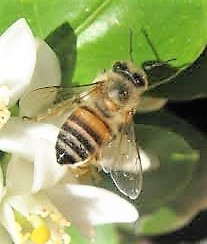Creating a marula supply line
Asali Society is developing beverages - meads, liqueurs, sodas and juices - made of honey and indigenous fruits. We are developing recipes using delicious, amazing, nutritious, under-valued indigenous fruits such as marula, mtandamboo, mbungo, and mtopetope pori.
Table. Indigenous Renewable Plant Resources to be used by Asali Society Meadery
|
English |
Swahili |
Part of plant to be used |
|
|
Adansonia digitata |
Baobab |
Mbuyu |
Seed powder |
|
Carissa spinarum |
native currants |
Mtanda-mboo |
Fruit, leaves |
|
Saba comorensis |
Bungo |
Mbungo |
Fruit |
|
Kigelia africana |
Mwegea |
Sausage Tree |
Fruit |
|
Sclerocarya birrea |
Marula |
Mgongo |
Fruit |
|
Tamarindus indica |
Tamarind |
Mkwaju |
Fruit |
|
Annona senegalensis |
African custard apple |
Mtopetope pori |
Fruit |
|
Vitex doniana |
Black Plum |
Mfulu, furu |
Fruit |
These fruits are amazing but with the exception of tamarind and sometimes baobab and bungo, you don’t see them much in the market.
As part of an assignment
In the course I am taking on Distribution and Sales at the UVM
Business of Craft Beer School we were asked to imagine some major difficulties
we might face in starting a brewery (or meadery in my case). I began to imagine the difficulties in sourcing
raw materials and setting up supply chains for ingredients. The definition of
the supply chain can be stated as: all the activities involved in delivering a
product from raw material through to the customer. Hmmm…We’ve started building
the honey supply chain…But what about the other ingredients….Marula, for
example….
Marula (Sclerocarya birrea, mgongo)
Marula is known, but it is also legendary. The fruits are four times higher in Vitamin C than an orange. It is a species with two sexes – only the female drops the fruits. If you go to the Selous Game Reserve the guides will point out big marula trees. They will take you to a tree alone in a field, and explain this is called the Leopard Tree. Mti wa chui. The tree fruits once a year, and the fruits drop all at once. The baboons come to feast on the fermenting fruits, and get drunk. Then they can be captured by the leopard who feasts on the baboons.
Mti wa chui in the Selous during the dry season.
Marula is the fruit behind the famous cream liqueur called Amarula made in South Africa. As a fan of that liqueur, one of the hottest selling liqueurs in the world, that is, one million 9-litre cases sold per year worldwide, I knew the fruit could be used well. Surely, we can make a lovely clear Amarula liqueur, for example. Or mix it with honey and make a mead, and some special sodas…
But where to find the fruits?
I’ve never seen them in the market. I didn’t know where the trees were – and they aren’t being commercially cultivated in Tanzania.
Then suddenly I received a Facebook message:
Hello Dr Anne. I would like to talk to you about marula trees. These trees are found in my home village name Mwada - Magugu in Manyara region.
The message was from a lady named Martha Steven whom I knew from a group called Tuko Sawa. She explained: I never knew that these fruits are used to make Amarula. When we were children we ate them, but we paid no attention to them as anything important. Even the villagers do not know the trees have value. The trees always have many fruits which are eaten by Baboons.
The next day I received another message from Martha: I have communicated by phone with my father at the .He told me that the Marula fruits are not yet ripe, they are still green. He said by April they might be ripe.
She continued, I am in Arusha which is not far from the village, about three hours by bus. I will make sure to check the trees, after the fruits ripen, I will transport them to Dar es Salaam.
A few days later, on 28 March 2021 her father called her to tell her some of the fruits were now ripe.
Transport of the fruits
The next day Martha was on the bus to Mwada-Magugu
Martha on the bus, protecting herself from possible contamination with COVID
Martha and her mother, Odilia Inyasi Mbisha, with marula fruits
The fruits are collected from the ground.
Martha collecting marula fruits
One of the Marula trees at Mwada - Magugu
Martha and her father, Stephen Martin Moswery!
Martha took the fruits to Arusha and got them loaded onto a bus to Dar es Salaam.
The fruits traveled in care of the bus conductors.
Via email I learned the fruits have arrived in Dar es Salaam safely. Ireen Mtui, my neighbor, my twin, born on the same day as me, has collected them.
Ireen Mtui has received the fruits. They are awaiting my return in the freezer.
A good beginning to the creation of a marula supply line. #UVMCLI #UVMrep #sponsored












Comments
Post a Comment